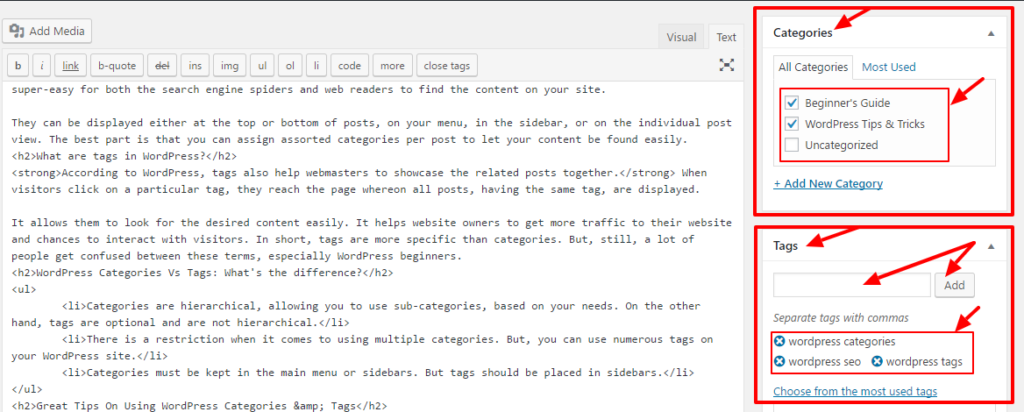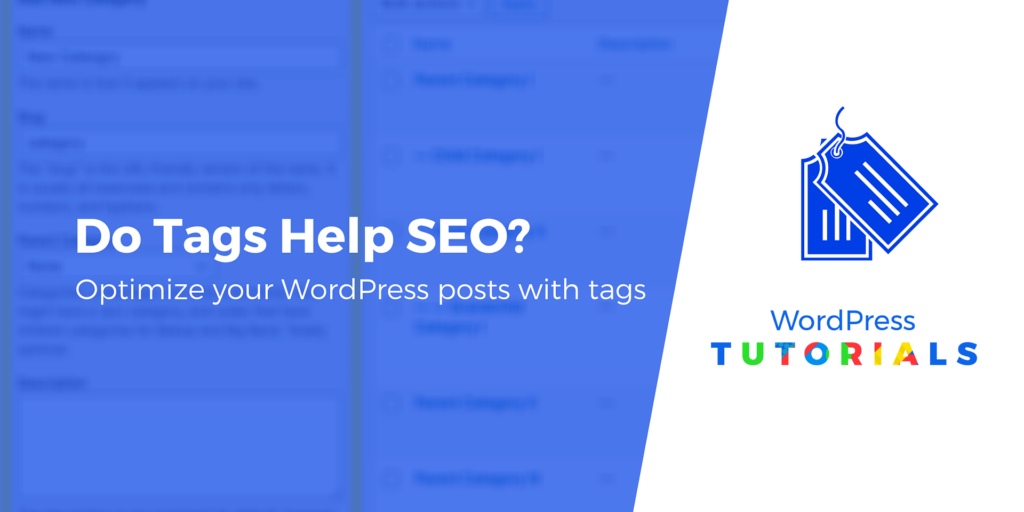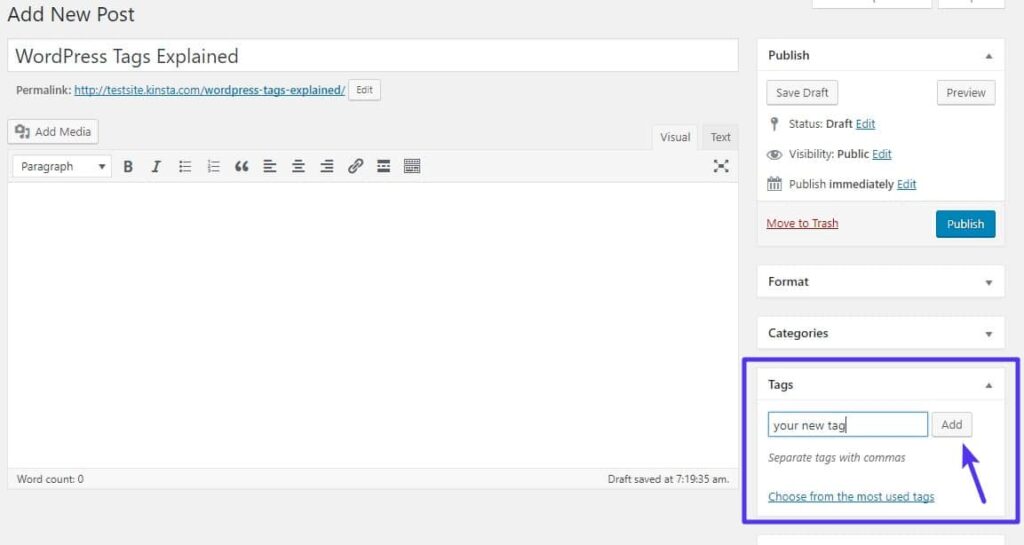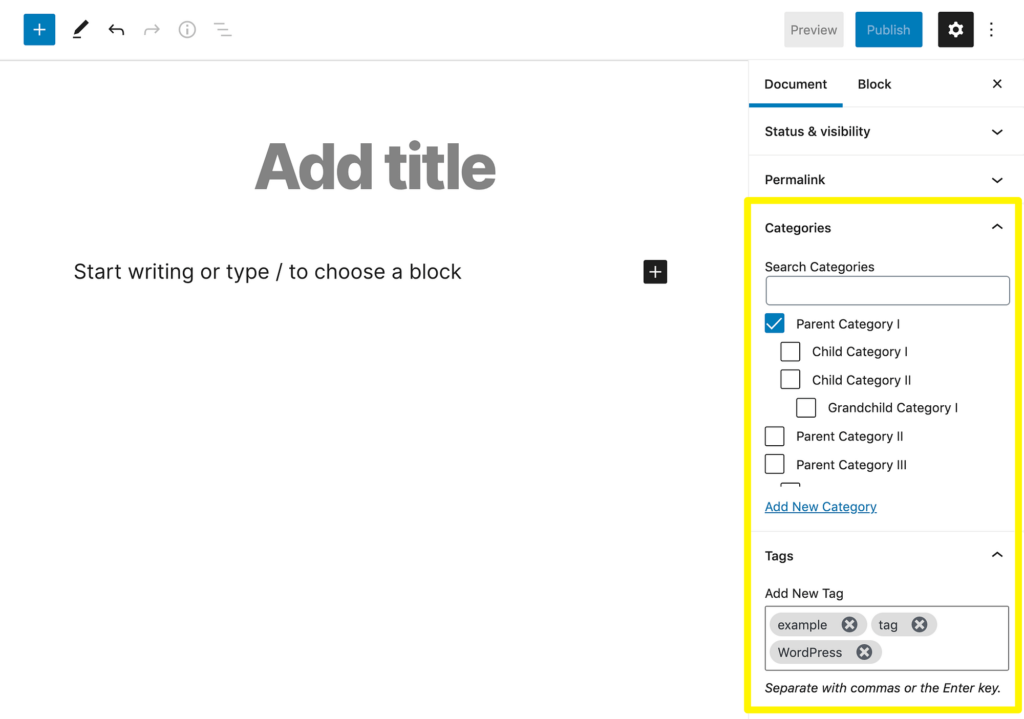In this article, you will learn about the role of tags in WordPress and their impact on SEO. Contrary to popular belief, tags don’t directly boost search engine rankings. However, they can enhance user navigation and improve the overall browsing experience on your website. Using tags strategically and avoiding duplicate tags and categories can potentially influence other SEO metrics. It’s important to prioritize user experience and content value over relying solely on tags for SEO purposes.
Do Tags In WordPress Help With SEO
As a frequent user of WordPress, I often come across the question of whether tags in WordPress actually help with SEO. Many website owners and bloggers are unsure about the purpose and impact of tags on search engine rankings. In this article, I will delve into the subject of tags in WordPress and explore their implications for SEO.

Categories vs. Tags: Understanding the Difference
Before diving into the SEO implications of tags, it is essential to understand the difference between categories and tags in WordPress. Categories are like chapters in a book, allowing you to group related content together. For example, if you run a culinary blog, you might have categories such as ‘Recipes,’ ‘Ingredient Guides,’ and ‘Kitchen Tips.’ You can assign multiple categories to a single post if topics overlap.
On the other hand, tags are like keywords that describe the content of your post. They work as an index at the end of a book, helping readers find related posts. For instance, if you have a pizza recipe, tags could include ‘homemade,’ ‘pizza,’ ‘Margherita,’ and ‘gluten-free.’ Tags offer more flexibility than categories as they enable users to explore specific topics rather than broader categories.
Organizational Benefits of Categories and Tags
Both categories and tags serve as excellent tools for organizing content on your website. They enhance the user navigation experience by providing clear pathways to desired information. When users can easily find relevant content, they are more likely to spend time browsing your site and engaging with your content.
Furthermore, the organizational structure achieved through categories and tags can benefit search engine optimization indirectly. Google’s search bots rely on a website’s structure to understand its content and navigate through it effectively. When your content is properly organized using categories and tags, search engines can better understand the relationships between different pieces of content on your site.

SEO Implications of Tags: Separating Fact from Fiction
Now, let’s address the SEO implications of tags in WordPress. Despite popular belief, tags do not have a direct impact on search engine rankings. Simply tagging your posts with relevant keywords will not automatically boost your chances of ranking higher on search engine results pages (SERPs). Tags primarily serve as organizational tools and should not be considered a standalone SEO strategy.
Misconceptions about WordPress tags often arise from their similarities to hashtags on social media platforms. However, unlike hashtags, tags do not have the same discoverability aspect on search engines. Being discovered solely through a tag is highly unlikely, as users often rely on broader search terms to find relevant content. In fact, excessively using keywords as tags can make navigation challenging for users and potentially harm your rankings.
While WordPress categories are mandatory for posts, tags are optional. However, utilizing tags strategically can enhance user navigation and encourage visitors to explore related content on your site. Increased engagement and extended browsing time can indirectly boost your SEO efforts.
Potential SEO Pitfalls with Tags: Addressing Content Value and Duplication
While tags can be beneficial, there are potential SEO pitfalls that must be avoided. One common mistake is creating low-value content by using excessive tags. Every new tag creates an archive page that contains only the posts associated with that tag. If you tag each post with every possible keyword variation, you will end up with numerous archive pages, most of which contain only a single post. This can be seen as low-value content by search engines, potentially harming your overall SEO efforts.
Another pitfall to watch out for is overlapping categories and tags. Using the same keyword as both a category and a tag can confuse search engine rankings. When duplicate content exists, search engines may struggle to determine which page should rank higher for certain keywords. To avoid this issue, it is crucial to ensure that your categories and tags are distinct from one another.

Best Practices for Using Tags: Ensuring Effective Organization
To make the most out of tags in WordPress while avoiding SEO pitfalls, it is important to follow some best practices:
-
Distinguishing Between Categories and Tags: To maintain clarity, avoid creating a category and a tag for the same term. A general approach is to use categories for broader topics and tags for more specific topics. For example, use “Sports” as a category and “Football” or “New York Jets” as tags.
-
Noindex Your Tag Archives: Prevent search engines from indexing tag archives by using plugins like Yoast SEO to set tag archives to “noindex.” This way, you avoid having search engines consider these archive pages as individual content entities and maintain better control of your site’s indexing.
-
Using Tags Sparingly: While tags are not obligatory, using them can enhance navigation and user experience if done correctly. Only include tags if they genuinely enhance the browsing experience by helping visitors discover related content. Use them sparingly, avoiding clutter or redundancy.
Keyword Targeting: Focusing on Valuable Content and Natural Incorporation
Instead of relying solely on tags for keyword targeting, it is crucial to prioritize creating valuable content and incorporating keywords naturally. Keyword optimization should focus on the post title, subheadings, meta description, and content itself. There is no need to rely on additional tags for SEO purposes. Search engines are becoming increasingly capable of recognizing valuable content, and genuine, high-quality material is more likely to be rewarded.

Conclusion: Myth vs. Reality of Tags and SEO
In conclusion, it is a misconception that WordPress tags enhance SEO directly. While tags can undoubtedly contribute to the organization of your content, they should not be considered a magic bullet for improving search engine rankings. The key takeaway is to prioritize user experience and content value over perceived SEO strategies.
Understanding the distinction between categories and tags, avoiding duplication, and using tags judiciously are all vital for maintaining an organized website and enhancing user experience. By following these best practices, you can indirectly influence factors that search engines consider for ranking purposes.
Ultimately, it is the overall user experience and content quality that play a more significant role in SEO success. Focus on creating valuable content and providing a seamless browsing experience for your visitors, and let that be the primary driver behind your SEO efforts.